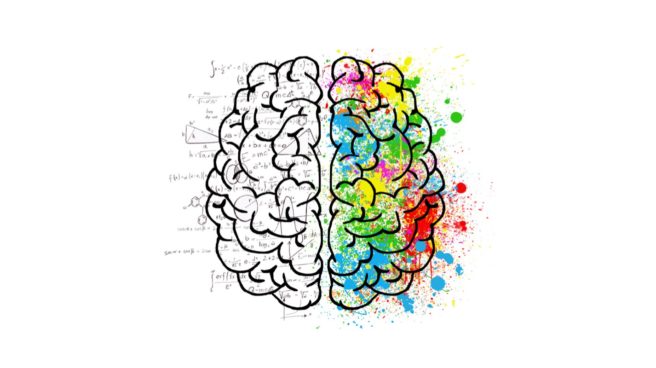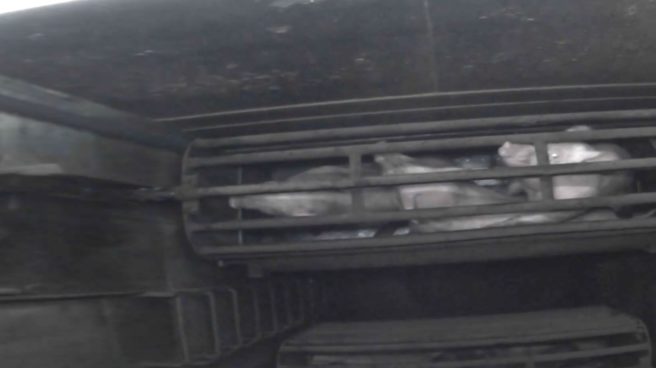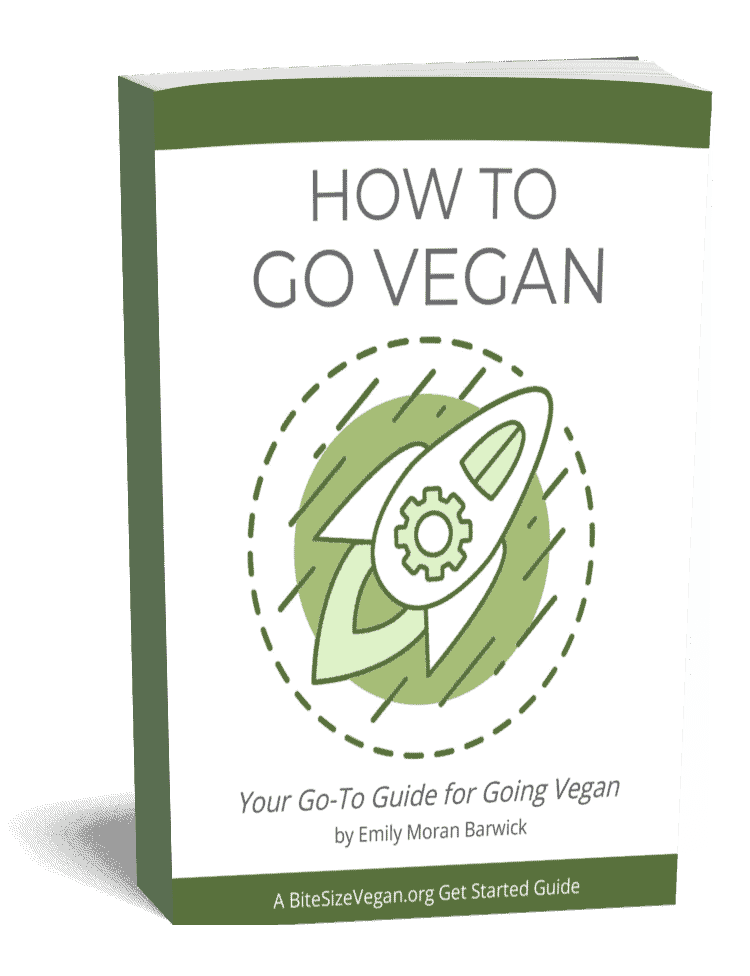Are vegans more depressed than non-vegans? There is a great deal of back and forth within the medical and lay communities about the impact of veganism on mental health. What does the science say?
Every now and again, an article[1] decrying the prevalence of depression among vegans and vegetarians stirs up controversy, most often prompted by the publication of one study or another assessing the impact of diet on mental health.
While sensational headlines like “The Scary Mental Health Risks of Going Meatless”[2] are sure to grab attention and pique the Schadenfreude-driven morbid fascination with taking veganism down a notch, are the studies behind such articles actually the damning evidence of vegan-induced mental unbalance their purported to be?
There is, unsurprisingly, a great deal of back and forth within the scientific, medical, and lay communities, about the impact of veganism on mental health, with ample studies indicating the mood enhancing benefits of a whole foods vegan diet,[3] while others suggest a correlation between veg inclinations and incidents of mental illness.[4]
While I will go into greater depth on the nutritional side of veganism and mental health in a separate video, I have included throughout this post citations to some of these studies as well as additional resources if you want help making sure your diet is balanced.[5][6]
But I’m addressing something in this video that was—for the most part—entirely absent in the hundreds of studies and articles I consulted, save for a few mentions here and there[7]: the reason why I would not be surprised in the slightest if in fact vegans are by and large more depressed.
In focusing on things like the quality of plant-derived long-chain omega fatty acids, all of these studies and articles failed to address the issue of awareness. There are many reasons people refuse to go vegan, but in my personal opinion, one main sourcesof resistance is the pain of accountability; the trauma of facing the true impact of our choices.
Interestingly enough, the two studies[8][9] behind the sensationalized headline I mentioned, [10] stated that participants’ mental illnesses had pre-dated their dietary switch. This of course lead to speculation that “the experience of a mental disorder increases the probability of choosing a vegetarian diet,”[11] and that “being a vegetarian [is] a fairly significant commitment and it picks up people at the fringe of the obsessive-compulsive spectrum.”[12] Essentially meaning you have to be crazy to even go vegetarian, god forbid vegan.
Framing veganism as a manifestation of dietary neurosis neglects the true breadth and depth of veganism, and the non-dietary motivations for changing one’s diet. For example, maybe depressed individuals are by nature more sensitive and empathetic to the suffering of others, influencing both their depressed state and their decision to go vegan.
There is one preliminary study that ventured into this area, using functional MRIs to observe and compare the brain activity of omnivores, and ethical vegetarians, and vegans as they viewed scenes of alternatively human and animal suffering.[13] While admitting their study’s own limitations, their results suggested higher empathy for non-human suffering amongst ethical vegans and vegetarians than within omnivores.[14]
Another study, which I cover in-depth my video “The N-Words Meat-Eaters Use,”[15] attempted to standardize the rationalizations made for eating meat. A more controversial aspect of their findings, supported by previous work as well, was that the people who ate the most meat tended to support, endorse, or justify, inequality within their own species as well.[16]
The true awareness of the horrors we inflict upon animals, the destruction we’ve wreaked upon the environment, and the damage we’ve brought upon our own bodies and those of our children, can prompt both a shift to veganism and an understandable state of depression. I don’t know if I’ve ever heard of a vegan conversion story devoid of emotional strife.
— Emily Moran Barwick
Denial and justification do function as protective measures. The true awareness of the horrors we inflict upon animals, of the destruction we’ve wreaked upon the environment, and the damage we’ve brought upon our own bodies and those of our children,[17] can prompt both a shift to veganism and an understandable state of depression. I don’t know if I’ve ever heard of a vegan conversion story devoid of emotional strife.
Of course, once we’ve gone through the pain of confronting our own part, we have the “pleasure” of watching the vast majority of the world, including our own friends, family, and loved ones, continue to participate in what we now clearly see as the enslavement, torture, and murder of innocent beings and decimation of our planet. Perhaps we see their health declining as they eat themselves to death.
If you’re non-vegan and find this a bit hyperbolic, you’re not alone. I have two videos that delve into this matter in greater depth, explaining the apparent emotional volatility, over-sensitivity, and at times outright aggression of vegans.[18][19]
In many ways, going vegan is like becoming an exposed nerve. Suddenly everything you’ve worked so hard to shield yourself from even thinking about comes into painfully clear focus—for some all at once, for others, progressively over time. Many vegans—whether consciously or not—start to rebuild their protective insulation, understandably finding it all too much to bear.
If any of us were ever to be fully and completely aware of what was happening every moment in this world, we’d literally be driven insane. Activists working on the front lines every day are exposed to a level of trauma rivaling any war zone. Whether undercover at slaughterhouses, hearing the horrific cries of pigs in gas chambers,[20] seeing the terror in the eyes of cows in knock boxes, watching sentient beings bleed out, gasping through torn tracheas, standing by as billions of male chicks are ground up alive in the egg industry,[21][22] infiltrating the dog meat industry where unspeakable torture of many species is standard practice,[23] or bearing witness outside of slaughterhouses—watching truck after truck after truck carry terrified beings to their brutal deaths[24], striving to educate and inform a widely uninterested—even apathetic and, at times, aggressively resistant—public to the lies they’ve been told and the realities they’ve denied.
For many, being vegan means seeing what we don’t want to see—what our entire society strives so profoundly hard to block out and ignore. And even when it is thrust out into the open, whether through undercover footage and documentaries, solid scientific evidence on the medical and environmental fronts, or the overturning of a livestock truck, literally spilling out into the open the very individuals we want so much to remain hidden—so we can eat their bodies without thinking of their faces—even then, when the truth is so blatantly exposed, we have well-practiced denials at the ready:
- it’s an isolated event
- it’s not like that here
- it’s faulty science
- we buy humane products
- we need the protein
- it’s what has to be done
- we just need better standards
- vegans are just overly-emotional
and on and on…
Or maybe we run out of justifications. And all we’re left with is brazen denial. As flimsy and ineffective at hiding the truth as the cardboard used to shield the public execution of the injured survivors of one overturned truck in Canada.[25]
We see—day after day—astoundingly malicious acts of cruelty, and disgustingly selfish disregard for the lives of others and the environmental crisis affecting us all. And perhaps even more heartbreakingly, our own family—self-proclaimed animal lovers—continuing to support everything we’re fighting against.
We watch as our loved ones eat the bodies and secretions of our loved ones. We watch as those holding the gun or the blade are protected, while those holding the camera or bottle of water are arrested and vilified,[26] because within the realm of the animal products industries, the killing of children is standard business practice, and anyone wanting to stop or even document this reality, is the criminal.[27]
I for one would not for a second trade the pain of awareness for the comfort of denial. Yes, there is bliss in ignorance—for the ignorant.
Emily Moran Barwick
So if a study does come out one day finding definitively that vegans are more prone to depression and mental illness than non-vegans, don’t expect to count me among the shocked. Honestly, with the state of our world and what we as a species continue to inflict upon others, ourselves and our planet,[28][29] not being heartbroken, devastated and enraged is a far more troubling reaction.
While this post may seem like the worst commercial for veganism ever, going vegan has and does enhance the physical and mental health of so many people. But it can simultaneously be incredibly challenging to stay connected to all the suffering and destruction.
But I for one would not for a second trade the pain of awareness for the comfort of denial. Yes, there is bliss in ignorance, for the ignorant.
For more information and resources, please see the links below, where I have provided resources for self-care, decompression ideas for activists, international crisis hotlines, as well as information on nutrition’s influence on mental health, which I will cover more in depth in another video.
I do want to note that while this video largely focused on trauma-induced and situational depression, mental illness does not depend on one’s experiences or beliefs. In addition, for any vegans with concerns about the ethics of medication, please see my video “Is Medication Vegan.”[30]
I personally want to thank my $50 and above patrons and my whole Nugget Army Patreon family for making it possible for me to dedicate myself fulltime to providing free, vegan education. If you’d like to help support the efforts of Bite Size Vegan please check out the support links in the video description below or the link in the sidebar.
If you found this helpful, please share it around to reach others struggling, and subscribe for more vegan content every week. Now go live vegan, with awareness, and I’ll see you soon.
— Emily Moran Barwick







This is the first I have heard of this. So no one ever that eats animals gets depressed? I think not.
I hate when so called studies like this are published. Some people will actually believe them. If we vegans are depressed it is because others are still slaughtering animals and eating them.